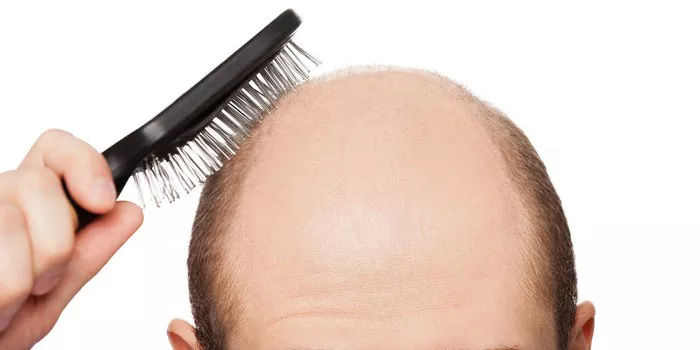Hair loss can be a distressing experience, especially when it’s associated with factors like steroid use. Whether you’ve taken steroids for medical reasons or as part of your fitness regimen, the concern about hair loss and its potential regrowth is valid. In this article, we’ll address the common query—will hair loss from steroids grow back? By understanding the underlying causes and exploring possible solutions, you can make informed decisions and find ways to restore your confidence.
Understanding Steroid-Induced Hair Loss
Steroid-induced hair loss often occurs due to the disruption of the hair growth cycle. Steroids can influence hormonal levels in the body, leading to imbalances that affect hair follicles. The most common type of hair loss associated with steroids is known as telogen effluvium, where an increased number of hair follicles enter the resting (telogen) phase and eventually shed.
Temporary vs. Permanent Hair Loss
The good news is that most cases of hair loss caused by steroids are temporary. As the hormonal balance is restored and the body adjusts to changes, hair follicles can gradually return to their normal growth cycle. However, in some instances, if steroid use is prolonged or excessive, it may lead to a more prolonged shedding phase or even a type of hair loss called androgenetic alopecia, which can be harder to reverse.
Will Hair Loss From Steroids Grow Back?
Hair loss caused by steroid use, especially anabolic steroids, can be reversible in some cases. Steroids can disrupt the natural hair growth cycle, leading to a condition called “steroid-induced alopecia.” When steroid use is discontinued, the hair follicles can potentially recover, and hair growth may resume over time. However, recovery timelines vary based on factors like individual response, the duration of steroid use, and genetics. In some cases, hair may regrow fully, while in others, it might not return to its original thickness. If you’re experiencing hair loss from steroids, consult a healthcare provider for guidance and monitoring.
Other Side Effects of Steroids
Steroid use, particularly anabolic steroids, can lead to various side effects beyond hair loss. These effects can vary depending on the type, dosage, and duration of steroid use. Some potential side effects include:
1. Acne:
Steroids can stimulate oil glands, leading to increased acne breakouts.
2. Mood Changes:
Steroid use may cause mood swings, aggression, and irritability.
3. Hormonal Imbalances:
Steroids can disrupt hormonal balance, affecting the body’s natural production of hormones.
4. Liver Damage:
Oral steroids can strain the liver, potentially leading to liver damage.
5. Cardiovascular Issues:
Steroids can increase the risk of heart-related issues, including high blood pressure and heart disease.
It’s essential to understand the potential risks and side effects of steroid use and to consult a healthcare professional before using any form of steroids. Misuse or abuse of steroids can have serious health consequences.
Steps for Promoting Hair Regrowth
Promoting hair regrowth involves a comprehensive approach:
1. Healthy Diet:
Consume a balanced diet rich in vitamins, minerals, and proteins.
2. Scalp Care:
Maintain a clean and healthy scalp to support follicle health.
3. Medical Treatments:
Consult a professional for prescribed medications or therapies.
4. Lifestyle Changes:
Manage stress, exercise regularly, and get sufficient sleep.
5. Gentle Hair Care:
Use mild products, avoid excessive heat, and minimize styling stress.
6. Professional Guidance:
Consult a dermatologist or trichologist for personalized advice and treatment options.
Consistency, patience, and a holistic approach are essential for successful hair regrowth.
Conclusion
In conclusion, hair loss caused by steroids can be a concerning experience, but the majority of cases are temporary. Understanding the mechanisms behind steroid-induced hair loss, factors affecting regrowth, and steps you can take to support recovery empowers you to navigate this journey with confidence. Remember that you’re not alone, and seeking guidance from healthcare professionals and finding emotional support can make a significant difference in your overall well-being. With patience, care, and proactive steps, you can promote hair regrowth and regain your sense of self-assurance.


